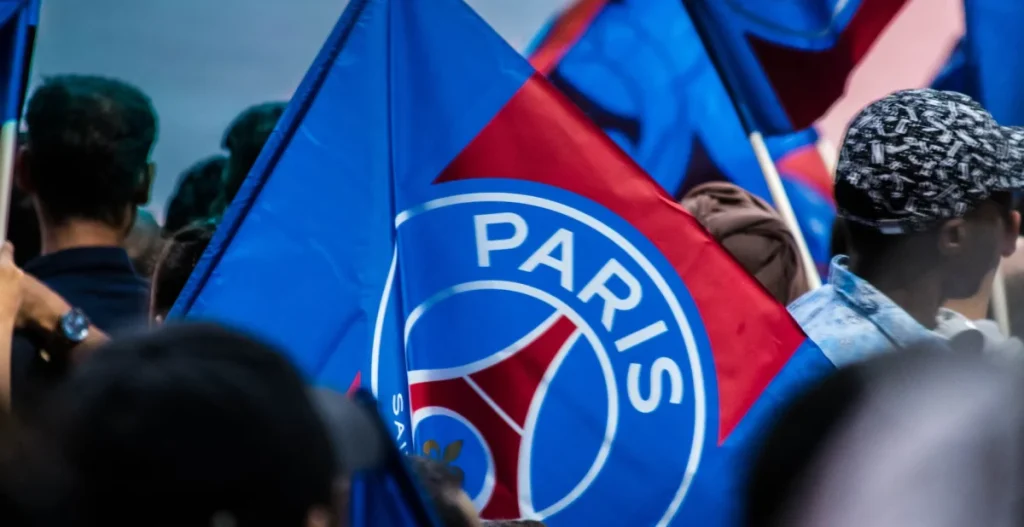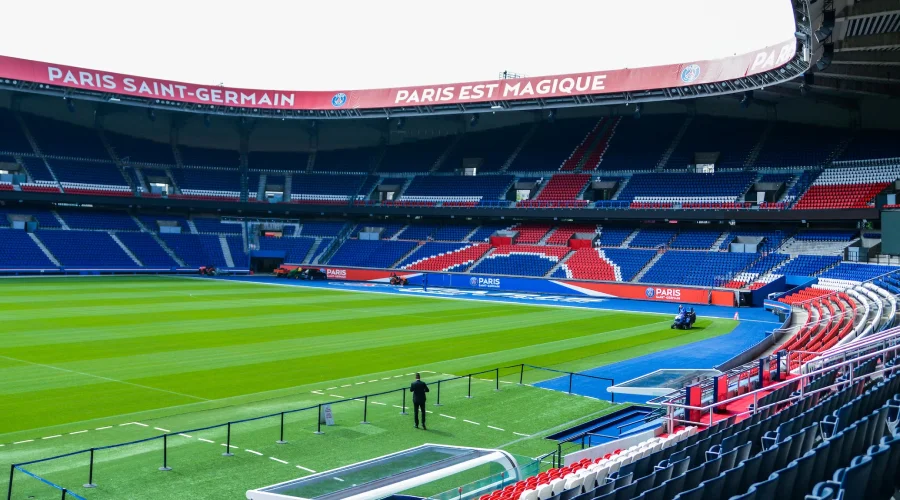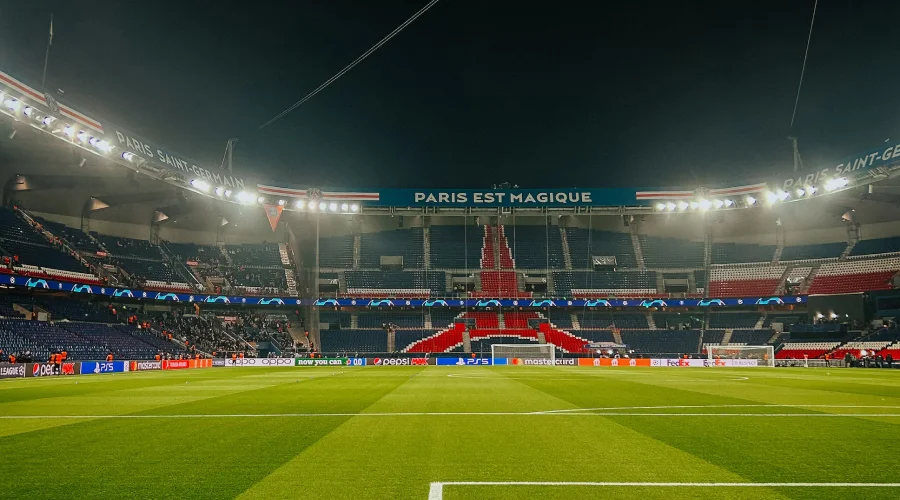
Paris Saint-Germain, commonly known as PSG, is not just a football club; it’s an institution, a symbol of Parisian pride, and one of the most prominent teams in the world of football. Established in 1970, PSG’s journey from a relatively obscure club to a global football powerhouse is nothing short of remarkable.
The Humble Beginnings
The Paris Saint-Germain (PSG), one of Europe’s most prominent football clubs, had humble beginnings that starkly contrast with its current status as one of the world’s wealthiest and most successful teams. Founded in 1970, the club has undergone an extraordinary transformation in its relatively short history, evolving from a relatively unknown team into a football giant.
PSG was established through the merger of two Parisian clubs: Stade Saint-Germain and Paris Football Club. This union was carried out with the intention of creating a stronger and more competitive team in the French capital. Despite this ambitious merger, PSG’s early years were far from a fairy tale. The team struggled in the lower divisions of French football during its initial seasons, facing financial difficulties and a lack of success on the pitch.
However, as the 1980s unfolded, PSG began to achieve some notable successes. The club won its first French Cup in 1982 and reached the semifinals of the UEFA Cup in the 1992-1993 season, marking a significant milestone in its history. During this period, the team featured standout players such as Safet Sušić and Luis Fernández, who left their mark on PSG and the European football scene.
Nonetheless, the real turning point in PSG’s history came in 2011 when the club was acquired by Qatar Sports Investments, an investment fund owned by the Qatari royal family. This acquisition ushered PSG into a new era of splendor, characterized by massive investments in world-class player signings. Under the leadership of iconic figures like Zlatan Ibrahimović, Thiago Silva, and David Beckham, PSG dominated Ligue 1 and became a serious contender in the UEFA Champions League.
One of the most significant moments in PSG’s recent history was the acquisition of Neymar Jr. in 2017, in a record-breaking transfer that made him the world’s most expensive player at that time. This signing, along with the arrival of Kylian Mbappé, propelled PSG to the elite of world football and established them as a team capable of competing with European giants.
Under the guidance of talented coaches like Carlo Ancelotti, Laurent Blanc, and, more recently, Mauricio Pochettino, PSG has won multiple league titles, national and international cups, solidifying its status as one of the most successful clubs in France and Europe. Furthermore, the Parc des Princes stadium has become an iconic and historically rich venue that hosts thrilling matches and a passionate fan base.
While PSG’s meteoric rise from its humble beginnings has brought immense success, it has also come with some controversy, partly due to the substantial financial investments and criticism about whether their success is due to purchasing expensive players rather than organic talent development. Nevertheless, it cannot be denied that PSG has left an indelible mark on the history of football and continues to be a team that captures the attention of fans worldwide.
Paris Saint-Germain has come a long way from its modest origins as a low-profile football club in Paris. Its meteoric rise to European stardom is a testament to the vision and investment of Qatar Sports Investments, as well as the talent and dedication of players and coaches. PSG has left an indelible mark on the history of football and remains a prominent player on the international sports stage.

In recent years, the landscape of international sports has been significantly influenced by the rise of sports investments from various sources, and one of the most notable examples of this phenomenon is the Paris Saint-Germain (PSG) football club. The transformation of PSG into a global football powerhouse can be largely attributed to the substantial investments made by Qatar Sports Investments, a fund owned by the Qatari royal family.
The story of PSG’s transformation into a football juggernaut begins in 2011 when Qatar Sports Investments acquired the majority stake in the club. This acquisition marked the start of a new era for PSG and set the stage for unprecedented financial backing. The Qatari ownership brought with it not only financial resources but also a clear vision to establish PSG as a global football brand.
The impact of this investment was immediate. PSG began making marquee signings, attracting world-class players to the Parc des Princes, and assembling a squad that could compete at the highest levels of European football. Players like Zlatan Ibrahimović, Neymar Jr., Kylian Mbappé, and others were brought in, breaking transfer records and making PSG one of the most glamorous clubs in the world.
Under the guidance of prominent managers and coaches, PSG started to dominate domestic competitions. They clinched multiple Ligue 1 titles and consistently performed well in the French Cup and League Cup. PSG’s presence was no longer confined to France; they were now a global football force.
However, PSG’s ambitions extended beyond domestic glory. They set their sights on winning the UEFA Champions League, the most prestigious club competition in European football. While they haven’t clinched the title yet, their performances in the Champions League have been noteworthy, with several deep runs into the knockout stages. Off the field, PSG’s brand has also flourished. The club’s merchandise sales, sponsorships, and global fan base have all seen remarkable growth. The PSG logo and jersey have become fashion statements, not just in Paris but around the world.
Critics argue that PSG’s success is purely a result of the deep pockets of its Qatari owners and that it represents a shift away from the traditional football values of developing homegrown talent. This debate on the role of financial investments in football continues to be a topic of discussion in the sports world.
In conclusion, the era of sports investments in Qatar, epitomized by Paris Saint-Germain, has redefined the landscape of football. PSG’s journey from humble beginnings to a global football powerhouse is a testament to the impact of strategic investments in sports. While it has sparked debates about the essence of the sport, there’s no denying that PSG’s transformation has left an indelible mark on the world of football and sports business.

The Takeover by Qatari Investors
The turning point in PSG’s history came in 2011 when Qatar Sports Investments (QSI) purchased the club. The new owners brought with them a wave of financial backing and ambition to transform PSG into a dominant force in European football. This marked the beginning of a new era, and PSG’s rise to prominence had just begun.
The involvement of Qatari investors, specifically Qatar Sports Investments (QSI), in the world of football, particularly their acquisition of Paris Saint-Germain (PSG), has been a game-changer in modern football. QSI is a subsidiary of the Qatar Investment Authority, the sovereign wealth fund of the State of Qatar, which invests in various sectors and assets globally. Their entry into football marks a significant shift in the landscape of the sport, showcasing how economic powerhouses from around the world are increasingly investing in football clubs.
The involvement of Qatari investors, particularly Qatar Sports Investments, has transformed PSG into a footballing behemoth, changing the face of French football and leaving a lasting impact on the global football landscape. The partnership between Qatar and PSG showcases the increasingly global nature of football, where clubs are not just representative of their cities but also of the international investors who support them.

Champions League Ambitions
While PSG’s domestic success was undeniable, the ultimate ambition was to conquer Europe. The UEFA Champions League was the uncharted territory PSG aimed to conquer. Over the years, they made significant progress in the tournament, reaching the final in 2020, only to be narrowly defeated by Bayern Munich. This showcased PSG’s ability to compete at the highest level.
PSG’s success did more than just elevate its football status; it also expanded its global fanbase. The club’s iconic crest and star-studded squad became familiar to football enthusiasts worldwide. The signing of Neymar from Barcelona in 2017 for a world-record fee further propelled PSG into the global spotlight.

Conclusion
In conclusion, Paris Saint-Germain’s journey from its humble beginnings to becoming a global football powerhouse is a tale of ambition, transformation, and relentless pursuit of excellence. The merger of two Parisian clubs in 1970 laid the foundation for a team that would go on to dominate French football and make its mark in Europe. The takeover by Qatar Sports Investments in 2011 was the catalyst for PSG’s rise, infusing the club with financial might and global aspirations.
PSG’s domestic success is undeniable, with numerous Ligue 1 titles and domestic cup victories. However, their ultimate ambition lies in conquering the UEFA Champions League, a goal they have tirelessly pursued, even reaching the final in 2020. The acquisition of world-renowned football stars like Neymar and Lionel Messi has not only elevated the club’s status but also expanded its fanbase worldwide.
Despite challenges and fierce competition in Europe, PSG’s legacy is still very much in the making. With a squad boasting some of the best talents in the world and the unwavering support of passionate fans, the club continues to chase the dream of securing the coveted European title. As they journey forward, PSG remains a captivating force in the footballing world, a symbol of Parisian pride, and an institution of football excellence.
